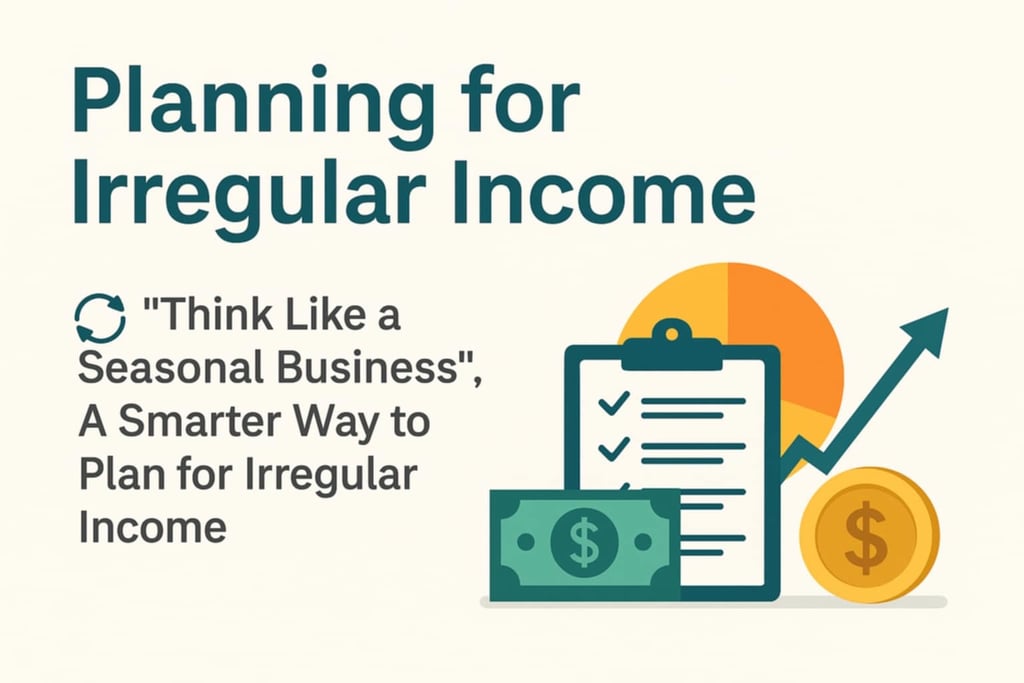A Smarter Way to Plan for Irregular Income
SMART FINANCIAL STRATEGY


🔁 “Think Like a Seasonal Business”: A Smarter Way to Plan for Irregular Income
Most advice on irregular income says “create a budget” or “build a bigger emergency fund.”
But what if you flipped the way you think about money entirely?
If you're a freelancer, creator, consultant—or anyone with inconsistent income—stop thinking like an employee with a paycheck.
Start thinking like a seasonal business.
Here’s what they do differently—and what you can steal from their playbook:
1. Peak Months = Harvest Time
👉 Seasonal businesses expect windfall months—and don’t treat them as the norm.
Instead of lifestyle inflation, they “harvest” the peak months to fund quieter times.
💡Action Tip: Assign every dollar during your peak months a job—some goes to savings, some to future slow-season expenses, and only a portion to spending.
2. They Build “Fixed Cost Buffers”
👉 Irregular income isn't the real problem. Fixed expenses are.
Seasonal businesses often renegotiate rent, subscriptions, and contracts to match seasonal cash flow.
💡Action Tip: Can you convert fixed costs into variable ones? Or build a 3-month “Fixed Cost Reserve” account?
3. They Use Rolling 90-Day Financial Planning
👉 Instead of rigid annual budgets, they use flexible rolling 90-day forecasts.
You don’t need to predict the year—just the next quarter.
💡Action Tip: Build a simple 3-month cash flow forecast. Use historical income patterns (or a conservative average) as a base. Update monthly.
4. They Diversify Revenue Timing
👉 Think “income layering.” Seasonal businesses often offer off-season services or products.
💡Action Tip: What can you offer during your low-income months to smooth the curve—mini products, digital offers, consults?
✅ Final Thought:
You don’t need a “stable job” to have a stable financial life.
You need a seasonal strategy mindset.
Because consistency isn't in your income—it's in your systems.
